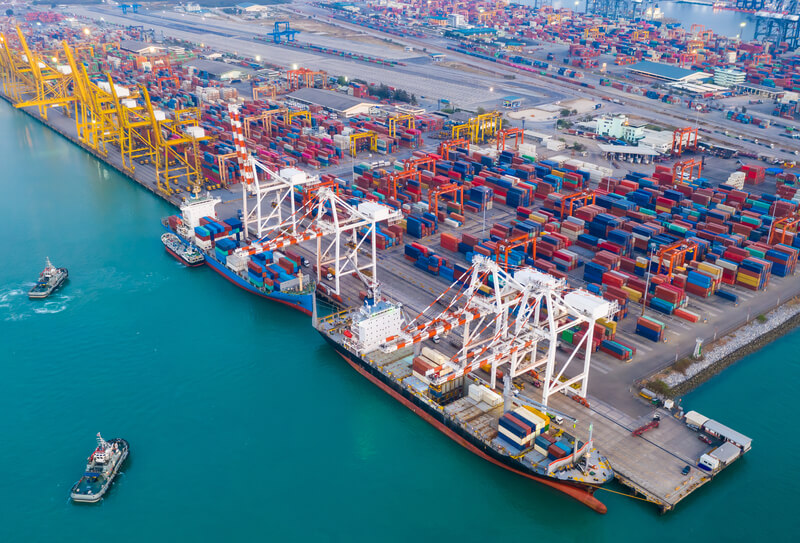We Need a New Direction to Grow
By: Ir. Dr Mohd Shahreen Madros

The biggest challenge lies not in the supply side capacity but rather the market demand.
There seems to be a disconnect somewhere. While the government believes they are doing so much for the industry, the industry on the other hand feels that the government could do more. At the same time, the people at large feel that we, as a nation, are slowly losing ground, and might even fall behind our neighbours in this economic race.
As a developing nation, we have been quite proactive in shaping our own economy. Since independence, we have intentionally shifted our economy from dependence on agriculture and minerals to be an industrialised economy. Today, manufactured goods contribute more than 80% of our export, and we are now less dependent on rubber, palm oil, and petroleum. The Electrical & Electronic (E&E) sector is the biggest component (almost 40%) of our export, and our total trade is larger than our gross domestic product (GDP). We have successfully industrialised, and become a global trading nation.
Government agencies have contributed greatly towards growing and supporting our economy. Malaysia Productivity Corporation (MPC), Malaysia Investment Development Authority (MIDA), Malaysia External Trade Development Corporation (MATRADE), SME Corporation Malaysia, and many other government agencies have played a crucial role. Total registered businesses currently stand around 1.2 million, with approximately 98% of those are SMI/SMEs. Through these agencies, the government has been directly involved in local enterprise capacity development. They assisted in talent and skills development, technology acquisition, provided special funding to grow businesses, standardisation to meet international requirements, embracing new technology of industry 4.0, and so on.
Supply & Demand in Need of Balancing
When our economy was growing at a very fast pace towards industrialisation, the market demand was larger than supply. With high economic growth, creating more agencies to help develop capacity on the supply side of the industry make sense. The Industry sector and enterprises needed help to grow their capacities. However, now with more than 1.2 million local businesses, our efforts are still in silos and focused on the supply side initiatives. Globalisation has brought more foreign enterprises into our own local market. A crowded market place resulted in more competition, and the demand side became a challenge.
Simply put, supply has exceeded demand. The biggest challenge lies not in the supply side capacity but rather the market demand. The scenario has changed, and our efforts probably should too. To effectively help our enterprises, ministries and agencies should work closer together, and balance their efforts by growing the market so that there are more business opportunities. Our enterprises’ biggest challenge now is finding buyers for their product and services rather than technology acquisition, branding or talents. Moreover, the current pandemic has only heightened enterprises’ survival experience. To open up new business opportunities for our enterprises, we could either be more effective in managing our internal demands, or we could explore new frontiers beyond our borders.
Government participation in businesses via government link companies (GLCs) could be an effective way to energise our local enterprises if there are clear policies and engagement in their procurement process. GLCs should not compete but rather be the vehicle to create more high-value technology companies in the private sectors.

The Electrical & Electronic (E&E) sector is the biggest component (almost 40%) of our export.
Taking a Closer Look
The Oil & Gas (O&G) industry is one sector that presents a great opportunity. It is one of the industry sectors that we are in control of, from upstream crude oil production all the way to downstream processing. Ironically, with the thousands of enterprises developed over the years, the bulk of the equipment used in our field and operations are imported. Local enterprises selling these products are mere agents of goods produced elsewhere. While we have succeeded in developing our natural resources effectively, we have, however, failed at developing technology enterprises that could carry on even after our natural resources have depleted.
Although we have been quite successful in bringing in more foreign direct investment (FDI) in our effort to become an industrialised nation, we have not truly capitalised on coordinating efforts to ensure more participation of local enterprises with these multinational companies (MNCs) in their supply chain.
While the E&E sector merchandise is our biggest export, how much of it is contributed by our own local enterprises? The E&E sector exports are currently dominated by foreign MNCs. With few exceptions, much of the products involved the mere assembly of imported components into final goods. We need leadership that would ensure good collaboration between foreign MNCs investing here and local enterprises. The opportunity to supplement or replace the imported components by locally developed goods should be explored.
“The days when industrialisation meant we should be aggressive on FDI should be balanced with an equally aggressive development of local-global champions.”
A Lesson to Learn
Tapping into the global market is now becoming more crucial than ever. New developing economies that used to be our peers are now market leaders. They have created their own global champions and they have ventured beyond their shores. They became Fortune 500 companies, and transformed into global technology leaders. Interestingly, many of these new global companies rely on their local enterprises back home for support in their value chain. They didn’t grow alone but rather through a healthy ecosystem that is in-tuned with global requirements and can withstand global challenges.
The global COVID-19 pandemic and the trade wars preceding it should be a reminder to us in what we will be facing in the future. The trade wars among the world economic superpowers have shown us what countries would do to protect their own economy. We cannot over-rely on (FDI) for employment or sustaining trade surplus. The days when industrialisation meant we should be aggressive on FDI should be balanced with equally aggressive development of local-global champions. Our investment policies that have good incentives for MNCs should be balanced with equal vigour, if not more, for growing our own global champions.
It is obvious we can no longer do things the same way and expect a different outcome. Continuously growing the supply side should be balanced with growing high-value businesses. Our trade must not be heavily dependent on MNCs but rather, we need to start growing our own global champions. Effectively connecting the industry value chain by promoting the collaboration of MNCs, GLCs, and local enterprises could open up new opportunities for our businesses. With good coordination of each industry value chain, we can grow our own Fortune 500 companies, and raise the hope of our country becoming a high-income nation.

Ir. Dr Mohd Shahreen Madros has over 30 years of working experience in various capacities. He was a lecturer in Universiti Kebangsaan Malaysia (UKM), with over 20 years of experience in the Oil & Gas industry. He was also the appointed CEO of MATRADE from early 2017 until Feb 2019 during which he represented Malaysia in many international trade missions. Dr Shahreen is currently an independent advisor to industries, a board member of a public listed company, a certified coach, and an Adjunct Professor at the Graduate School of Business, UKM.


